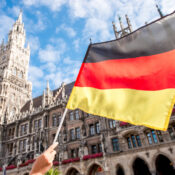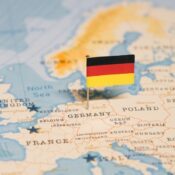
Recognition of Diplomas, Certificates, and Professional Qualifications from Turkey in Germany: What You Need to Know
Germany, as one of the largest economies in Europe, opens its doors to professionals from various countries to meet the demand for qualified labor. However, for diplomas, certificates, and professional qualifications obtained from Turkey or other countries to be valid in Germany, they must go through specific processes. These processes involve terms like “recognition” and “equivalency.” So, what are recognition and equivalency? Why are they necessary? What are regulated and unregulated professions, and how are they related to recognition and equivalency? Here’s what you need to know:
-
What Are Equivalency and Recognition? What Are the Differences?
Equivalency and recognition are different processes for the acceptance of diplomas and professional qualifications obtained from foreign countries in another country.
- Recognition: Recognition refers to the acknowledgment of an educational institution as an authorized diploma-granting institution by the competent authorities of the country in question and its accreditation by international quality assurance bodies. For example, for a university diploma obtained in Turkey to be recognized in Germany, the university must be recognized by the relevant authorities in Turkey and accredited by international quality assurance organizations. In Germany, this recognition process verifies the reliability and validity of the educational institution.
- Equivalency: Equivalency, on the other hand, is the process of assessing whether a diploma from a recognized university is equivalent to the education or professional qualification in another country. Equivalency may be mandatory for the individual to practice certain professions in that country. For instance, to work as a doctor in Germany, it must be verified whether the medical degree obtained in Turkey is equivalent to medical education in Germany.
Differences:
- Recognition focuses on whether the university is authorized and reliable, whereas equivalency assesses whether the education the individual received matches the professional education in the target country.
- Recognition may be a prerequisite for the equivalency process, but graduating from a recognized university does not automatically grant equivalency. The equivalency process requires a separate evaluation, and it may take time to complete.
- Why Are Equivalency and Recognition Necessary?
The recognition and/or equivalency of diplomas or certificates obtained from Turkey is critical for anyone wishing to work in Germany for several reasons:
- Legal Requirement: In some professions (e.g., medicine, nursing, engineering), equivalency is legally required to work in Germany. It is not possible to work in these professions with a foreign qualification unless equivalency is granted.
- Employment Opportunities: Employers in Germany may be uncertain about whether to accept foreign qualifications. Having professional qualifications recognized provides an advantage in job applications and makes it easier for employers to understand these qualifications.
- Immigrant Integration: The recognition of professional qualifications in Germany facilitates faster integration into the economic and social life of immigrants. Being able to practice their professions allows immigrants to work in suitable jobs and earn higher incomes.
- Professional Development: Equivalency or recognition processes are essential for professional growth. For example, if there are areas found to be lacking, they can be completed during these processes, bringing individuals up to German standards.
- Regulated and Unregulated Professions: The Relation to Recognition and Equivalency
In Germany, professions are divided into two main categories: regulated professions and unregulated professions.
- Regulated Professions (Reglementierte Berufe): In Germany, regulated professions legally require specific professional qualifications. Equivalency is mandatory to work in these professions. Examples include doctors, pharmacists, lawyers, teachers, and engineers. For these professions, foreign qualifications must undergo the equivalency process before the individual is permitted to work. Authorized official institutions in Germany assess the professional equivalency applications for these professions.
- Unregulated Professions (Nicht-reglementierte Berufe): In these professions, there is no legal requirement for equivalency. The recognition process is more flexible in unregulated professions, and employers can evaluate the individual’s qualifications based on their experience. Examples of unregulated professions include marketing specialists and software developers. Although equivalency is not required, seeking recognition can increase the chances of securing a job.
- Official Institutions and Application Process
In Germany, the recognition of diplomas and certificates involves working with specific official institutions. One of the most important resources for the recognition and equivalency processes in Germany is the “Anerkennung in Deutschland” platform. Through this platform, you can learn which institutions are authorized for which professions and how the equivalency process works.
- IHK FOSA (German Chamber of Commerce and Industry) is responsible for the equivalency processes in the fields of commerce and industry.
- ZAB (Central Office for Foreign Education) deals with the recognition of foreign academic qualifications.
- German Language Proficiency and Completion Courses
- Language Proficiency: Particularly in regulated professions, knowledge of the German language must be at a specific level. Depending on the profession, your language level must be at B2 or C1. In fields like healthcare, law, and education, language skills are crucial.
- Completion Courses and Internships: If your education is found to be incomplete during the equivalency process, you may need to take additional courses or internships in Germany. These opportunities help you meet the professional standards in Germany.
Conclusion
The recognition of diplomas, certificates, or professional qualifications obtained from Turkey is crucial for both legal requirements and increasing your chances of finding a job in Germany. If you plan to work in a regulated profession in Germany, you must apply for equivalency. In unregulated professions, applying for recognition is important for easing the job search process.
Presenting your professional qualifications in Germany not only contributes to your personal development but also enhances your professional growth.
Professional Support from Kaplan Horizons in the Recognition and Equivalency Process
At Kaplan Horizons, we provide professional consultancy services for the recognition and equivalency of your diplomas, certificates, and professional qualifications obtained in Turkey. Our expert team closely follows the recognition and equivalency processes in Germany, guiding your applications in the most accurate and efficient way.
These processes require correct document preparation, communication with relevant institutions, and application tracking. At Kaplan Horizons, we help you overcome any challenges you may face during the application process and stand by your side throughout the process. We provide the best solutions to ensure that your equivalency applications are accepted and that you reach your career goals.
As we always say: Enjoy your adventure and leave the procedures to us!



